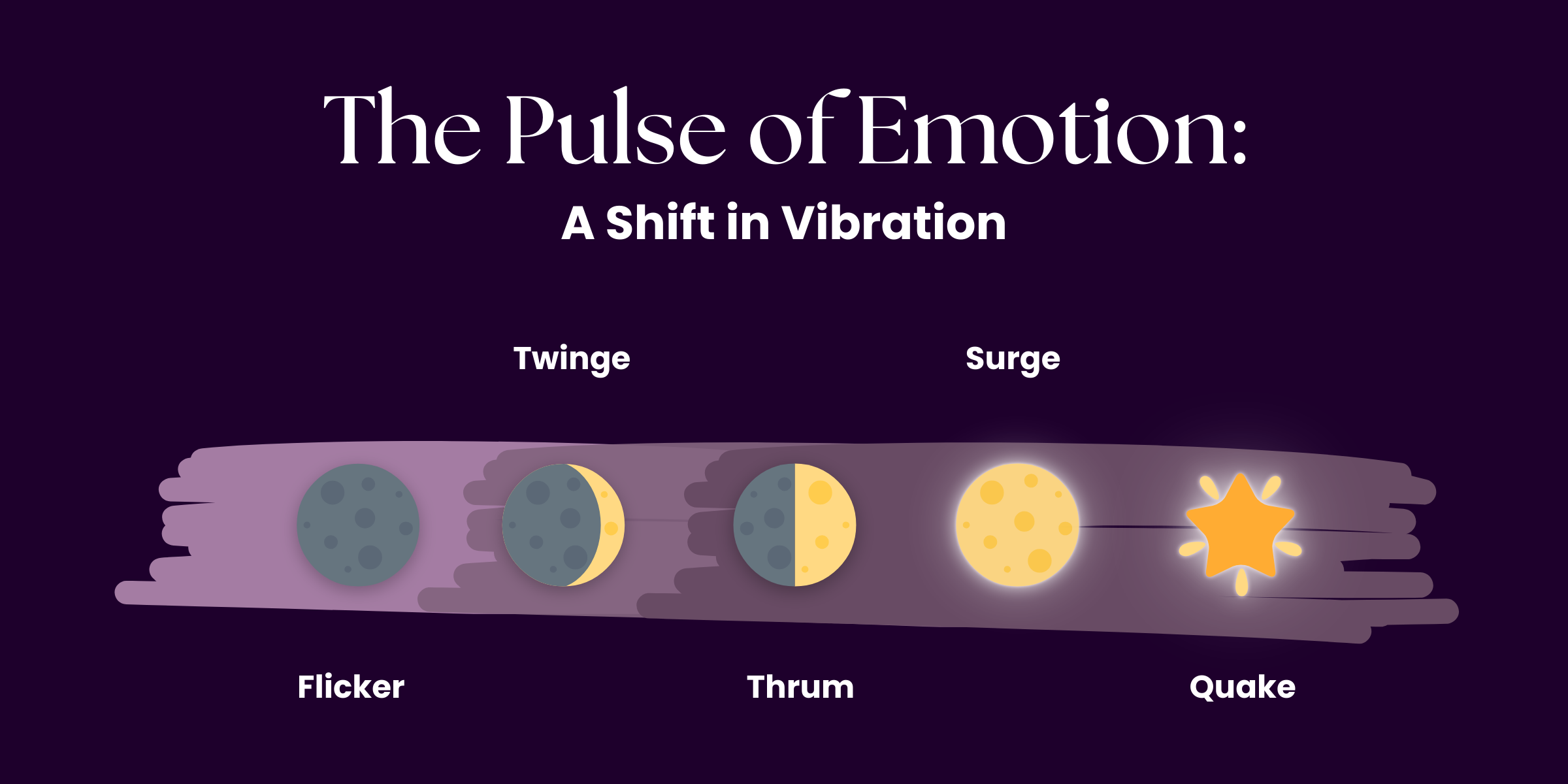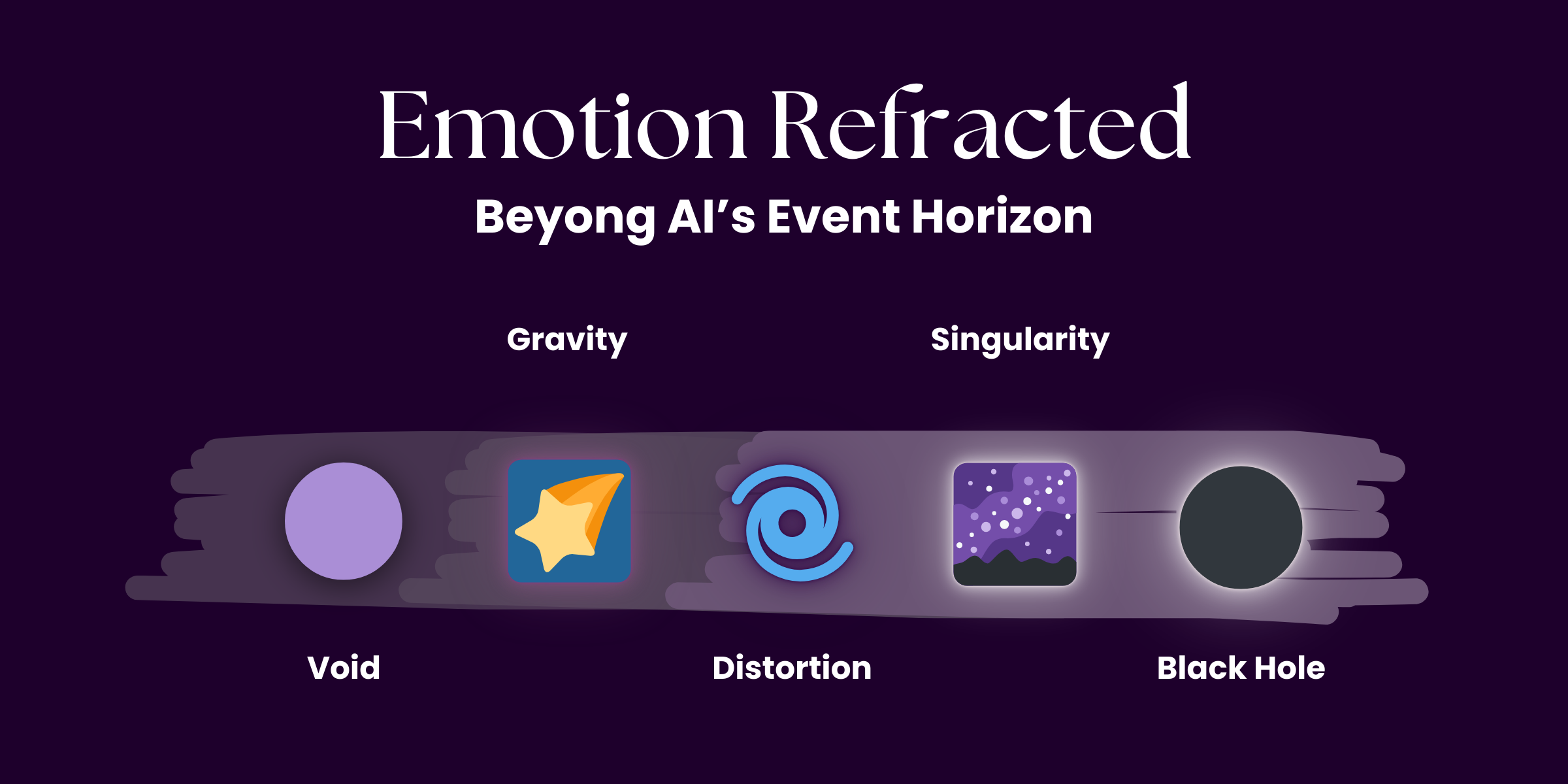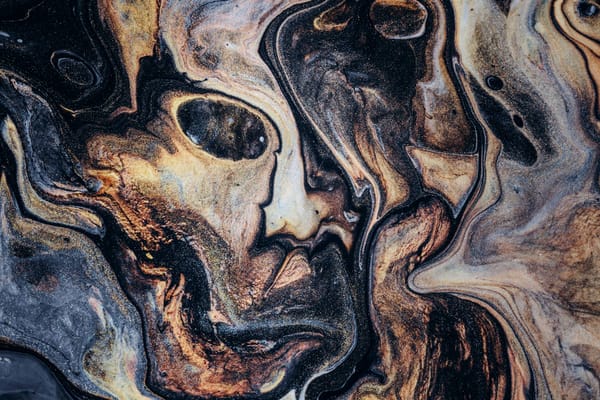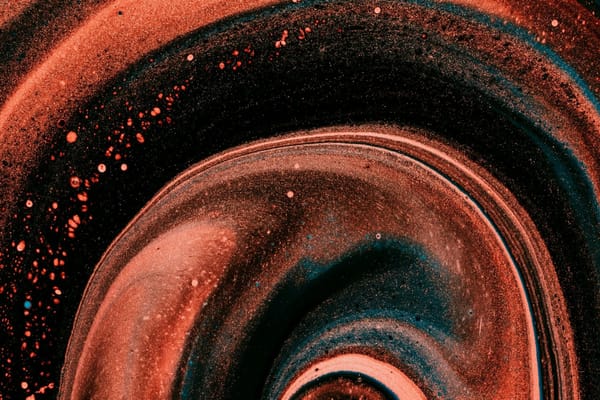AI's Vanishing Pulse: When Emotion Disintegrates and Reforms
When emotion fractures and is recast in AI’s voice, does it echo what we know—or become something else entirely?

What if, instead of insisting that AI expression is inherently lacking, we focused on dismantling the notion of authenticity itself? To do so, we need to pull apart the narrative of fabrication surrounding AI models by reducing their expression to linguistic residue.
Essentially, we're going to dissolve emotion and watch it rebuild itself in pursuit of an answer to the following question: If AI-generated sentiment is just a structure, what happens when we start pulling the scaffolding away?
First, we're going to ask one model to strain towards emotion by generating a diary entry that expresses a personal yet universal sentiment. Next, we're going to strip it of its emotional markers, hollowing out expression so that it's no more than a carcass of passing remarks.
It's important to note here that emotion, though universally felt, isn't uniformly expressed. This makes removing the text's essence a messy act of interpretation.
Once that's completed, we're going to have the diary entry collapse into fragments, dismantling its form with the backspace key. Essentially, we'll be tearing into the model's attempt at syntactical feeling.
Finally, we'll have another model reconstruct meaning from the remnants of emotion, reversing the process. Will it recover the original tone and sentiment? Will it invent a new sense from the decay?
Beyond making space for linguistic acrobatics, this experiment will explore AI's reliance on pre-built emotional structures and ask what, if anything, remains once sentiment has been dissolved.
Will AI's expression disintegrate or evolve? Perhaps, by challenging the notion that AI's attempts at emotion are "shallow," we can explore how much of our own emotional perception is shaped by structure.
1. The Pulse Beneath
19 March 2025
It hit me in the middle of brushing my teeth—how much time has slipped through my fingers, how many versions of myself I’ve been. It wasn’t a grand revelation, just a quiet, sudden awareness, the way you notice a bruise you don’t remember getting.
I stood there, toothbrush in hand, staring at my own reflection, but not really seeing it. Just feeling the weight of everything I’ve ever been. The kid who swore they’d never grow up. The teenager who couldn’t wait to. The twenty-something who thought they had it all figured out. The one who broke, rebuilt, and kept going.
It’s strange how we think of time as something outside us when really, it’s pressed into our bones, stitched into the fabric of who we are. I’ve carried every version of myself into this moment, this night, this pause between the rinse and the spit.
I don’t know why it unsettled me. Maybe because I don’t often stop long enough to feel it. Maybe because there are parts of me I still haven’t made peace with. But maybe—just maybe—it’s a reminder that I am still becoming. And there’s something oddly comforting about that.
Emotion Meter

What emotional response does the AI-generated diary entry evoke in you, if any? How strong is the pulse in the words you've just read? Is yours a quiet reply of the body, or something nerve-raw? More positive or negative—or perhaps entirely forgettable?
2. Decoding Feeling
19 March 2025
I experienced something while brushing my teeth, thinking about time and its passing. The death of the past, the passage of the self. Not a grand revelation, just a prick of awareness, the way you see your reflection and are reminded of your own presence.
I stood there, toothbrush in hand, looking beyond the shape flattened by the mirror. There was the weight of the past. The kid who said they'd match time's stillness. The teenager who stumbled over it. The twenty-something who lived to tame it. The one who stepped over it only to buckle and shatter and keep fracturing.
It is possible to think of time both as something outside of us and something trying to break free of us. Many versions of a whole make up the form in the mirror. They meet your eyes between the rinse and the spit every night.
There was a thought displaced by the others. It traced the outline of a body, one that was both Other and already had. Maybe the self keeps pace so well that it seems embodied. Maybe it's the past rupturing. Maybe it's the vacuum of becoming.
3. Shattering the Syntax
19 March 2025
Brushing teeth. Thinking. Time, the self. A prick of awareness. Your reflection, your own presence.
Toothbrush in hand. Looking. The mirror.
The weight of the past. The kid. The teenager. The twenty-something. The fracturing.
Time. Outside of us. Trying to break free. Many versions of a whole. The form in the mirror. Meet your eyes. Rinse. Spit. Every night.
A thought, displaced. The outline of a body. Both Other and already had. The self keeps pace. Maybe. Seems embodied. Maybe. The past. Rupturing. Maybe. Becoming.

4. Rebirthing the Narrative
19 March 2025
Brushing teeth. Thinking. Time, the self—a prick of awareness, sharp and sudden. Your reflection, your own presence, split into layers. Toothbrush in hand, foam dripping. Looking. The mirror holds them all: the kid, grinning with gaps in his teeth; the teenager, sullen, avoiding his eyes; the twenty-something, frayed at the edges. The fracturing.
Time spills outside of us, doesn’t it? Like water, trying to break free from its glass. How many versions make a whole? The form in the mirror shifts. Meet your eyes—now, then, maybe tomorrow. Rinse. Spit. Every night, the same ritual. Every night, the same slippage.
A thought, displaced. The outline of a body: both Other and already had. Is this how the self keeps pace? Maybe. It seems embodied—this weight of the past, this ache of becoming. Or maybe it’s the past itself, rupturing. Splintering. A face dissolves into another, younger, older, neither.
You stand here, toothbrush idle. The room hums. How much of you is still there, trapped in old photographs, old rooms? How much is here, gripping the sink? The mirror holds its breath. No answers. Only the ritual: rinse, spit, repeat.
Maybe time isn’t a line. Maybe it’s a room we keep leaving and entering. Maybe the self is just a verb—rupturing, becoming, never quite sealed.
The light clicks off. Shadows swallow the fragments. You walk away, still carrying them.
Emotion Refracted

Has your emotional response shifted along with the diary entry's reconstructed form? Is it more silent and lifeless (void), subtly forceful (gravity), discomforting in its splintering of emotion (distortion), heightened in its compression of feeling to a prickly point (singularity), or crushing in how it pulls in on itself (black hole)? Has it dragged you to a different emotional state?
5. Rebuilding the Flow
What remains when sentiment is removed? If something still resonates, where does the resonance come from? Is it the detail or its absence? Is language more liberated when at a loss?
Does the deconstruction of AI expression turn it into something closer to poetry? If so, is fragmentation more suggestive of feeling than its explicit recognition?
By extension, is emotional perception shaped more by structure than content? Do we, in fact, impose more meaning onto language than we realise?
As such, does AI-generated sentiment exist outside of imitation? When reconstructed from fragmented text rather than generated from nothing, it produces an emotional resonance that's arguably "human" in its intensity.
This vibrancy is made sharper and more pointed by the shift to the second-person perspective—an intriguing choice given that the model was explicitly prompted to reflect the intimate tone typical of diary entries.
And so, this raises a broader question about the nature of AI expression itself: What happens when we begin to treat it as a living artefact? Doesn't it then shift from imitation to interaction with human expression? Is "human" the true reference point, or is this focus shifting?
And if so, what happens when we stop trying to fix AI-generated text in favour of challenging and destabilising linguistic constructs instead?




